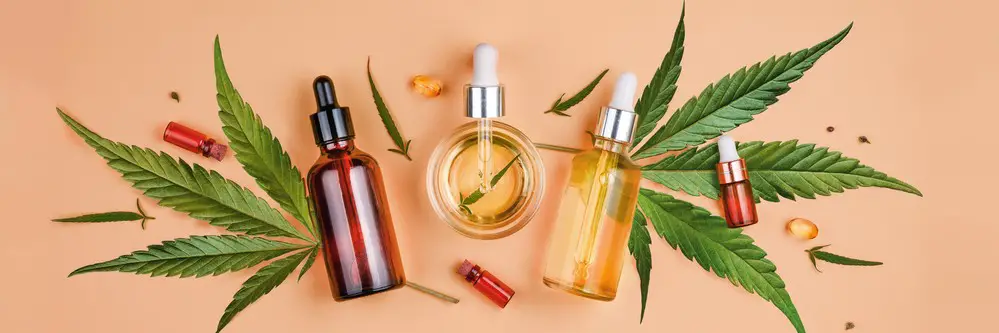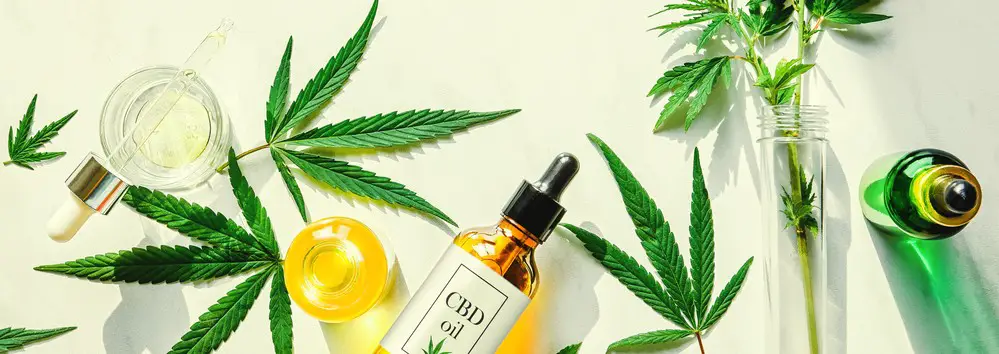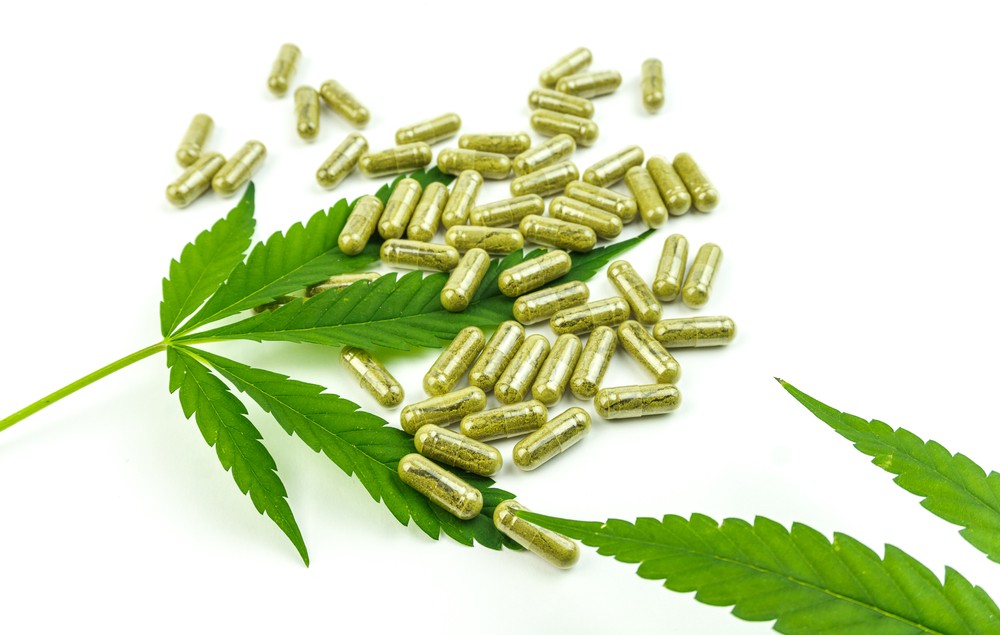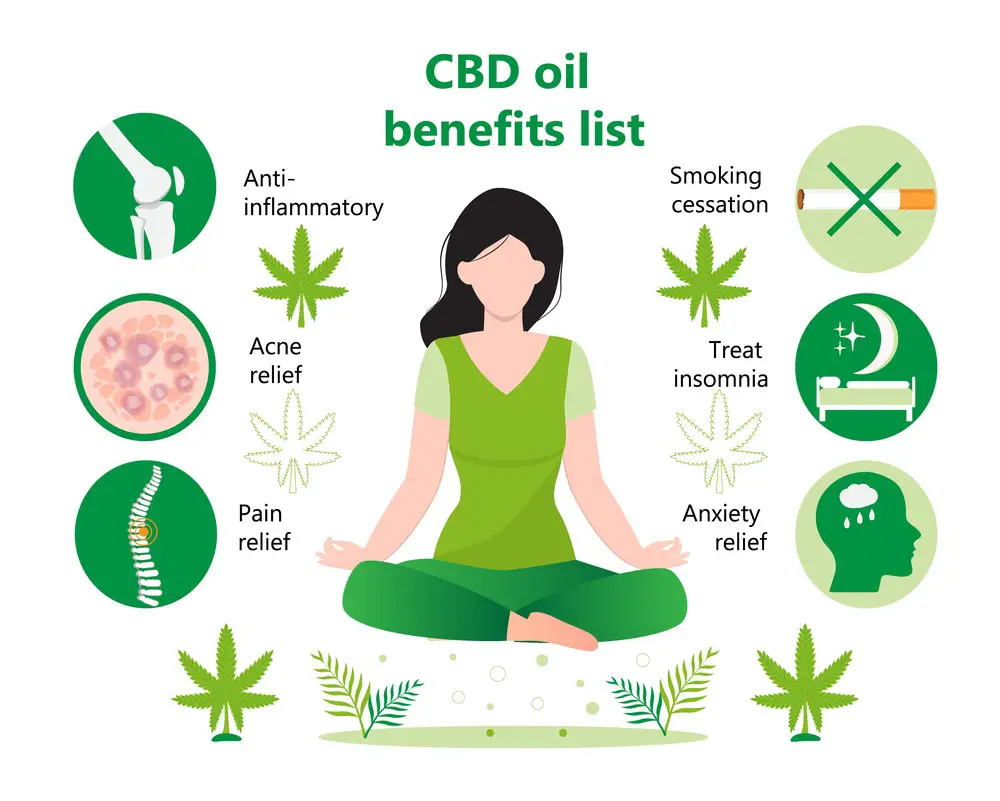As a BetterHelp affiliate, we receive compensation from BetterHelp if you purchase products or services through the links provided
CBD oil for anxiety has gained traction recently as an alternative or complementary treatment option for those struggling with anxiety disorders. As awareness about mental health continues to grow, individuals are increasingly looking for natural remedies that relieve their symptoms. Derived from the cannabis plant, CBD oil is a chemical compound known for its potential therapeutic effects, and unlike its counterpart THC, it does not produce a psychoactive high.
A considerable amount of research has been conducted on the effectiveness and safety of CBD oil for treating anxiety, with findings suggesting promising results for some individuals. However, weighing the potential benefits against possible side effects and safety concerns is crucial before deciding whether to incorporate CBD oil into one’s anxiety management routine. As the market for CBD products rapidly expands, it is also essential to consider factors such as product quality, administration methods, and legal regulations when evaluating this treatment option.
Key Takeaways
- CBD oil is a popular alternative treatment for anxiety, offering potential relief without psychoactive effects.
- Studies show promise in using CBD oil for anxiety, but potential side effects and safety concerns should be considered.
- Product quality, administration methods, and legal regulations are essential factors in evaluating the use of CBD oil for anxiety.

Understanding CBD Oil
CBD oil, a popular natural remedy, has gained significant attention for its potential benefits in managing anxiety. Extracted from the cannabis plant, CBD – or cannabidiol – is a cannabinoid that lacks the psychoactive effects commonly associated with marijuana.
Hemp-derived CBD products containing less than 0.3% THC are widely available and legal in most places. This is important to note, as the minuscule amounts of THC differentiate hemp-derived CBD oil from the mood-altering properties found in marijuana.
In contrast to other cannabinoids, CBD interacts smoothly with the body’s endocannabinoid system. This intricate system, responsible for regulating various functions, appears to benefit from CBD’s gentle approach. Some praise the oil for its calming effects and potential to reduce anxiety symptoms.
Although the relationship between CBD and anxiety might seem complex, the oil’s interaction with the endocannabinoid system holds the key to understanding its potential benefits. So, let’s delve into CBD oil and explore the possibilities it brings to the table for those coping with anxiety.
CBD Oil and Anxiety
CBD oil is gaining momentum in the health and wellness world, with scientific studies suggesting its potential to ease symptoms of certain ailments, notably anxiety.
Anxiety, a common affliction, can plague an individual in various forms, such as generalized anxiety disorder, social anxiety, PTSD, and SAD. Approaching anxiety treatment with natural remedies like CBD oil may seem like fresh air and deliver positive outcomes.
CBD oil, an extract of the cannabis plant, is believed to interact with the body’s endocannabinoid system, which plays a pivotal role in regulating various physiological functions. This fascinating interaction has piqued researchers’ interest, leading to scientific investigations.
Emerging evidence reveals that CBD oil may be a gentle companion for those struggling with anxiety. For instance, a study showed that CBD oil effectively reduced symptoms in individuals facing social anxiety. Moreover, some preclinical data suggest CBD oil’s potential to be an effective adjunct treatment for generalized anxiety disorder.
Nevertheless, the road to understanding CBD oil and anxiety has its bumps. The FDA has approved only one CBD-derived medication, Epidiolex, for epilepsy treatment, while the agency’s stance on other CBD products remains vague. Consequently, the market for CBD oil runs the gamut from well-researched products to snake oil.
Despite the limitations and uncertainties, hope glimmers on the horizon. An increasing number of scientific studies are dedicated to unveiling the precise effects of CBD oil on anxiety disorders. As with any treatment, it’s essential to consult a healthcare professional before venturing into the world of CBD oil for anxiety.
Considering both pros and cons, it becomes apparent that the elusive world of CBD oil demands further research to foster confidence in its use as a natural remedy for anxiety. Until then, the journey toward understanding CBD oil, anxiety, and its intriguing relationship continues.

Research on CBD Oil for Anxiety
The world of research on CBD oil for anxiety is rapidly expanding as scientists and clinicians strive to understand this natural compound’s potential benefits and risks. There is a tantalizing glimmer of hope in the air, as emerging evidence points to the possible anxiolytic effects of CBD.
One fascinating study conducted by Brazilian researchers revealed that CBD might impact the brain’s limbic and paralimbic areas, which are involved in emotional processing. This means that CBD could regulate how individuals experience fear or stress. The participants of this study reported a significant decrease in anxiety levels after receiving an oral dose of CBD. What a promising start!
Moreover, a critical review of previous literature found that CBD has demonstrated the potential to reduce anxiety-related behaviors in various animal models. Notably, this review highlighted the need for continued intensive research in the area, given the immense therapeutic potential of CBD.
However, it’s not all sunshine and roses, as the research on CBD oil for anxiety is still in its infancy. There is a pressing need for large-scale, randomized clinical trials to provide more concrete evidence on the efficacy and safety of CBD oil in treating anxiety disorders. The key here is patience and perseverance as research gradually advances and uncovers more definitive answers.
Although there is no denying that numerous anecdotal accounts point to the positive effects of CBD oil on anxiety, relying solely on such stories isn’t enough. Researchers must continue to explore the various aspects of CBD, including its optimal dosages, long-term effects, and intricacies in interaction with other treatments.
As the scientific community comes together and delves deeper into the enigmatic world of CBD, it is essential to maintain a neutral and knowledgeable stance. After all, the key lies in delivering the most clear and accurate information to individuals seeking respite from their anxiety through CBD oil.
The journey to understanding the full potential of CBD oil for anxiety is undoubtedly thrilling, with countless challenges and opportunities interspersed throughout. It’s an exciting time in scientific discovery, and only time will reveal the actual effectiveness of this intriguing natural compound.

Benefits of CBD Oil for Anxiety
Imagine experiencing a sense of calm so profound that it gently washes away stress and anxiety, leaving you feeling grounded and relaxed. That’s precisely what many people have found while incorporating CBD oil into their mental health regimen. The therapeutic potential of this natural substance in alleviating anxiety and its distressing effects is gaining more attention and impressive results.
One key contributing factor to anxiety disorders is an imbalance in serotonin, which helps regulate mood and behavior. CBD oil is believed to interact with the serotonin receptors in the brain, potentially helping to balance this essential chemical and create a soothing effect.
CBD oil offers a unique, non-habit-forming alternative to traditional pharmaceutical options for stressed individuals. By mitigating the damaging impacts of chronic stress, it could also aid in diminishing the risk of anxiety-related depression.
Sleep disturbances often go hand-in-hand with anxiety, hindering the ability to get a good night’s rest. CBD oil exhibits calming properties, which may encourage more restful and revitalizing sleep. This not only improves overall well-being but also contributes to better mental health.
As a versatile and natural solution, CBD oil can be integrated into various routines to meet unique needs. Whether someone seeks a calming elixir to combat daily stressors or a more targeted approach for specific anxiety disorders, an optimized dose of CBD oil could pave a new path to a serene state of mind.
In the ever-expanding world of mental health care, CBD oil emerges as a promising ally for those searching for tranquility. This seemingly exceptional elixir inspires hope, as it effectively tackles anxiety, stress, and sleep difficulties on multiple fronts. CBD oil continues to garner praise as a vibrant testament to the power of nature’s remedies through its potential neurochemical effects and gentle guidance toward more peaceful slumbers.
Potential Side Effects
When considering CBD oil as a remedy for anxiety, knowing the potential side effects is crucial. Although CBD is generally well-tolerated, some individuals might experience mild to moderate adverse reactions. In this section, we will discuss the most commonly reported side effects, providing a clear understanding of what one might encounter when using CBD oil.
Firstly, drowsiness appears to be a common issue. Although many people turn to CBD oil to help with their anxiety because it can have calming effects, it also makes some users feel sleepy or tired. To counteract this, starting with a low dose and monitoring the body’s response before increasing CBD oil consumption is essential.
Another potential side effect is digestive issues. Some users of CBD oil report experiencing diarrhea. This usually occurs when people take large doses of CBD oil or use it for an extended period. It might be beneficial for users to introduce CBD oil into their daily routine gradually and to be mindful of the dose.
Additionally, CBD oil has been known to cause dry mouth in some users. This condition, also known as cottonmouth, happens when the saliva production in the mouth decreases. Although uncomfortable, it’s typically a short-lived and easily manageable side effect.
Interestingly, some individuals using CBD oil have also reported changes in appetite and weight. Some people might notice a reduction in appetite, while others may experience an increase. This could lead to fluctuations in weight as well. Keeping a balanced diet and maintaining a healthy lifestyle can help mitigate these changes.
In conclusion, CBD oil for anxiety may have potential side effects, such as drowsiness, fatigue, diarrhea, dry mouth, and changes in appetite or weight. While these side effects are generally mild and manageable, individuals must monitor their body’s response to CBD oil and consult their healthcare providers if they have any concerns. Remember, everyone’s experience with CBD oil will differ, and finding the correct dosage and frequency may require some experimentation.
Quality and Safety Concerns
Many people searching for relief from anxiety consider CBD oil as an option. However, being cautious and evaluating quality and safety concerns is crucial. The market’s rapid growth means plenty of products are out there, and not all are created equal. Some may not have been tested for their efficacy or safety.
With CBD products, third-party testing is vital in ensuring that what’s on the label is what you’re getting. Reputable companies provide customers with a certificate of analysis (COA), which confirms the product’s content and verifies that contaminants like pesticides are kept at bay.
But even then, one must tread carefully, as not all COAs might tell the whole story. Sometimes, these certificates don’t reveal the presence of contaminants like heavy metals, bacteria, or mold, which can harm one’s health.
To mitigate these risks, buyers must scrutinize the brand and its manufacturing process. High-quality CBD oils should come from a reliable source that values transparency. Manufacturers who use organic hemp or employ other trustworthy practices are less likely to have their products contaminated.
So, deciding on CBD oil for anxiety is not simply grabbing the first one you see. Remember, your well-being is at stake, and not all CBD products are created with the same care and diligence. Do your research, ask questions, and ensure you’re making an informed decision for your health and peace of mind.
Types of CBD Products
As growing interest in its potential benefits to alleviate anxiety mounts, it’s crucial to understand the various types of CBD products available. Fear not, dear reader; we’ll unravel the myriad choices in this informative section.
First, let’s discuss the three varieties of CBD, namely full-spectrum, broad-spectrum, and CBD isolate. Full-spectrum CBD contains all the natural compounds in the cannabis plant, including trace amounts of THC. This creates an entourage effect that amplifies the potential benefits. Meanwhile, broad-spectrum CBD retains all those compounds but eliminates THC. For the purists, CBD isolate is 99% pure, offering the utmost focus on this single compound.
Now, on to the bountiful forms they come in!
Tinctures are a versatile option, given their ease of use. By simply placing a few drops under your tongue and waiting for a minute, CBD enters your bloodstream and works its magic. If you desire discretion, capsules or softgels might be your tea. They resemble everyday supplements, allowing you to seamlessly slip them into your routine.
For taste connoisseurs, gummies and other edibles present a delightful opportunity. Not only do these treats mask the earthy flavor of CBD, but they also make consumption a whole lot more enjoyable. Remember, moderation is vital, as indulging in too many could lead to unforeseen consequences.
A popular choice among consumers is CBD oil, which offers various concentrations to suit individual needs. In addition, sprays can be administered under the tongue, offering a similar method of consumption as tinctures.
In conclusion, the world of CBD products is vast and teeming with possibilities, catering to the whims and fancies of every individual. Whether tinctures or gummies entice you, always watch for quality and opt for a reputable brand. Happy exploring!
Dosage and Administration
When considering CBD oil for anxiety, dosage, and administration play crucial roles in attaining the desired calming effect. Although the journey to finding the ideal dosage may require a bit of trial and error, it’s always best to start low and gradually increase it.
It’s essential to seek guidance from a knowledgeable doctor to get a recommended dosage tailored to one’s needs. Each individual reacts differently to CBD depending on various factors such as age, weight, and the severity of anxiety symptoms. It’s also worth mentioning that CBD’s phytochemical profiling may vary, leading to different effects based on the specific product.
One common administration method is a dropper that enables precise measurement of CBD oil. By carefully dripping the oil under the tongue and holding it for 30 to 60 seconds before swallowing, individuals can experience the fastest absorption rates.
To simplify the process and avoid hassles, keep a meticulous record of the doses taken, their respective effects, and any adverse reactions. This documentation will paint a clearer picture of how CBD affects you personally and aid in adjusting the dosage for optimal results.
For many, the reliance on prescription anti-anxiety medications brings many side effects and potential long-term consequences. In comparison, CBD oil provides a natural and promising alternative. However, ensuring proper dosage and administration is key to unlocking its full potential.
So, fear not! With patience, persistence, and professional guidance, finding the suitable dosage for alleviating anxiety and rediscovering the joy of life is just around the corner.
Drug Interactions
CBD oil has risen in popularity due to its potential benefits in reducing anxiety. However, it’s essential to understand its possible interactions with other medications, particularly blood thinners. Let’s explore these interactions and their implications.
Firstly, CBD influences the metabolism of several drugs, including blood thinners. It does so by inhibiting cytochrome P450, a group of enzymes responsible for breaking down various substances, including medications. This inhibition can cause medications to remain in the bloodstream longer, potentially leading to increased side effects or toxicity.
Take the case of warfarin, a common blood thinner. The drug levels may need close monitoring when using CBD oil alongside warfarin to prevent unforeseen complications. This delicate dance between CBD oil and blood thinners highlights the need for caution and professional guidance when considering incorporating CBD oil into one’s healthcare routine.
Moreover, CBD oil may interact with other medications to treat anxiety, such as selective serotonin reuptake inhibitors (SSRIs). Combining these two substances may increase the risk of adverse effects like serotonin syndrome. It’s essential to proceed cautiously and consult a healthcare professional when considering any interactions between CBD and anxiety medication.
Apart from medication, it’s also worth noting that users of CBD oil should remain vigilant regarding their caffeine consumption. CBD and caffeine act on the adenosine receptors, which regulate the sleep-wake cycle. Thus, an unexpected interaction might keep you awake at night as your adenosine receptors fire away.
In conclusion, CBD oil may hold promise as an alternative treatment for anxiety, but one must always tread carefully and weigh the risk of drug interactions. Always speak with a qualified healthcare professional before embarking on a journey with CBD oil, especially if you’re already on medications such as blood thinners or other anxiety treatments.
Legal Aspects and Accessibility
The legal landscape surrounding CBD oil has evolved in recent years, making it more accessible for those seeking a natural remedy for anxiety. The 2018 Farm Bill played a pivotal role in this change, as it redefined the hemp plant, bringing it under a new legal classification.
Previously, hemp was considered a Schedule I controlled substance, akin to marijuana, due to its Tetrahydrocannabinol (THC) content. However, the 2018 Farm Bill reclassified hemp as an agricultural product, granted it contains no more than 0.3% THC by dry weight. This distinction enables people to reap the benefits of CBD oil without the psychoactive effects commonly associated with marijuana use.
As regulations shift, the accessibility of CBD oil for treating anxiety has dramatically increased. No longer shrouded in the stigma of its marijuana cousin, CBD oil has emerged as a trusted and natural alternative for those seeking relief from anxiety symptoms. CBD hemp-derived products are legal and readily available in many countries and states.
However, it’s vital to note that this newfound legality is not universal. Laws governing the use of CBD oil vary from state to state and country to country, thus complicating matters for potential consumers. Some states have lenient rules, while others maintain strict regulations, challenging access to CBD oil for anxiety treatment.
In conclusion, the legal aspects and accessibility of CBD oil for anxiety can be a double-edged sword. On the one hand, the revisions introduced by the 2018 Farm Bill have opened up a world of possibilities for those struggling with anxiety disorders. On the other hand, the varying legal restrictions can create confusion and limit access for some individuals. To navigate these complex waters and make informed decisions, it’s essential to stay up-to-date with your specific region’s regulations on CBD oil usage.
Frequently Asked Questions
What are the side effects of using CBD oil for anxiety?
Although CBD oil is generally considered safe, it can cause some mild side effects in certain individuals. Users might experience dizziness, dry mouth, fatigue, or changes in appetite. Everyone’s body reacts differently, so one person’s experience may differ from another’s.
How effective is CBD oil for managing anxiety symptoms?
Research suggests that CBD oil may help manage anxiety symptoms by interacting with serotonin receptors in the brain. While studies have shown promising results, it’s important to remember that CBD oil is not a one-size-fits-all solution. Its effectiveness varies from person to person, and it may take some experimentation to find the optimal dosage for each person’s needs.
What is the optimal dosage of CBD oil for anxiety?
Determining the optimal dosage of CBD oil depends on factors like body weight, metabolism, and the severity of anxiety. It is wise to start with a low dose and gradually increase until the desired effects are achieved. Consult a healthcare professional for personalized guidance on CBD oil dosages for anxiety.
How does CBD oil interact with medications for anxiety disorders?
CBD oil may interact with certain medications, including those used for anxiety disorders. It is crucial to consult with a healthcare professional before using CBD oil, especially if you are already taking anxiety medication.
Is CBD oil safe for long-term use in treating anxiety?
The long-term safety of CBD oil for treating anxiety is not yet fully understood, as research in the field is still in its nascent stages. However, in the short term, CBD oil appears to be well-tolerated by most individuals when used responsibly under the guidance of a healthcare professional.
Are there any risks or drawbacks to using CBD oil for anxiety?
Potential risks of using CBD oil for anxiety include adverse side effects, medication interactions, and the lack of standardized dosages. Moreover, not all CBD products are created equal, with some containing more or less CBD than advertised. Choosing a reputable CBD product from a trusted brand and discussing the options with a healthcare provider is essential to minimize potential risks.
- 7 Ideas to Help You Relax and Unwind on a Family Vacation - April 27, 2025
- How Having Cybersecurity Protection Helps You Relax - April 25, 2025
- 8 Reasons Why Spending Time Outside Calms You Down - April 25, 2025
This site contains affiliate links to products. We will receive a commission for purchases made through these links.



